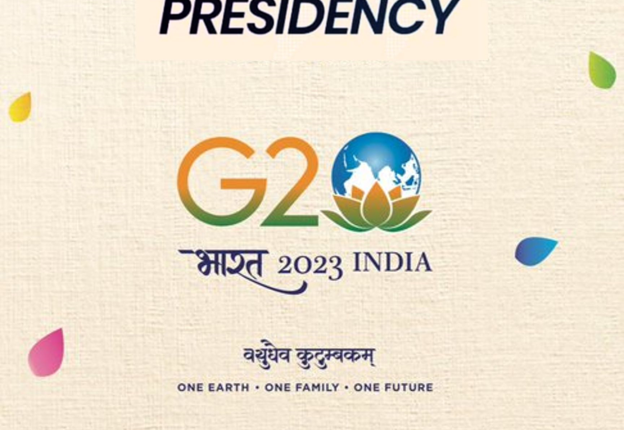India’s G20 Legacy Shapes Agenda Ahead of Johannesburg Summit
As world leaders prepare to gather in Johannesburg later this week for the 20th G20 Leaders’ Summit, India’s imprint on the grouping’s evolving priorities remains unmistakable. From its landmark presidency in 2022–23 to its active engagement in the Troika with Brazil and now South Africa, India continues to influence how the world’s premier economic forum addresses global challenges.
A Transformational Presidency
India’s G20 Presidency, from December 2022 to November 2023, is widely credited with having reshaped the G20’s orientation. Guided by Prime Minister Narendra Modi’s vision of an “inclusive, ambitious, decisive, and action-oriented” presidency, India positioned the forum as a platform with a human-centric approach rather than one focused solely on economic issues.
India’s signature achievement — securing permanent membership for the African Union — expanded representation within the G20 and strengthened the voice of the Global South. Its presidency also placed a global spotlight on issues including SDG acceleration, resilient growth, the green development agenda, digital public infrastructure, multilateral reform, and women-led development.
Diplomats observe that India’s presidency acted as a stabilizing force in an era marked by geopolitical divisions. “India became the bridge-builder the world needed,” said a senior official familiar with G20 deliberations.
Continuity Through Brazil
After India handed over the presidency to Brazil in December 2023, its role within the G20 Troika ensured policy continuity. Brazil — the third developing country presidency in a row after Indonesia and India — continued to foreground development issues.
Officials note that the language and ambition of the New Delhi Leaders’ Declaration were clearly reflected in Brazil’s Rio Leaders’ Declaration, demonstrating India’s lasting influence on the forum’s agenda.
South Africa Leads With a Global South Focus
South Africa took over the G20 Presidency on December 1, 2024 — the first African nation to do so and the final Global South presidency in the current cycle. Under the theme “Solidarity, Equality and Sustainability,” South Africa’s priorities include:
Strengthening disaster resilience
Ensuring debt sustainability for low-income countries
Mobilising finance for a just energy transition
Harnessing critical minerals for inclusive, sustainable development
Pretoria has also launched three temporary task forces on inclusive growth, food security, and AI-driven sustainable development, and introduced frameworks to address global inequality and enhance African engagement.
With the United States set to assume the presidency next year, observers say the Johannesburg summit represents a critical moment to secure development-focused outcomes before leadership shifts to advanced economies.
A Crucial Summit Ahead
The Johannesburg Leaders’ Summit on 22–23 November will feature three major sessions where India is expected to make interventions:
Inclusive and Sustainable Economic Growth
(Trade, development financing, and debt burdens)A Resilient World
(Disaster risk reduction, climate change, just energy transitions, and food systems)A Fair and Just Future for All
(Critical minerals, decent work, and artificial intelligence)
Guest countries include Algeria, Egypt, Ireland, the Netherlands, Nigeria, Norway, Singapore, UAE, Ethiopia, Uruguay, Vietnam, Qatar, and Spain. A wide range of regional, development, and UN agencies will also participate.
India’s Role as Bridge-Builder
As global divisions persist, experts expect India to again play the role of mediator. “India’s leadership during its presidency showed that progress is possible when countries come together with a shared sense of purpose,” said an Indian official. The spirit of Vasudhaiva Kutumbakam — “One Earth, One Family, One Future” — which defined India’s presidency, continues to guide its approach within the grouping.
With high-stakes negotiations ahead on climate finance, debt relief, energy transition and emerging technologies, the Johannesburg Summit may well test the G20’s capacity for consensus. But with India helping build bridges, many hope the forum can deliver outcomes that matter — especially for the Global South.


Comments are closed.